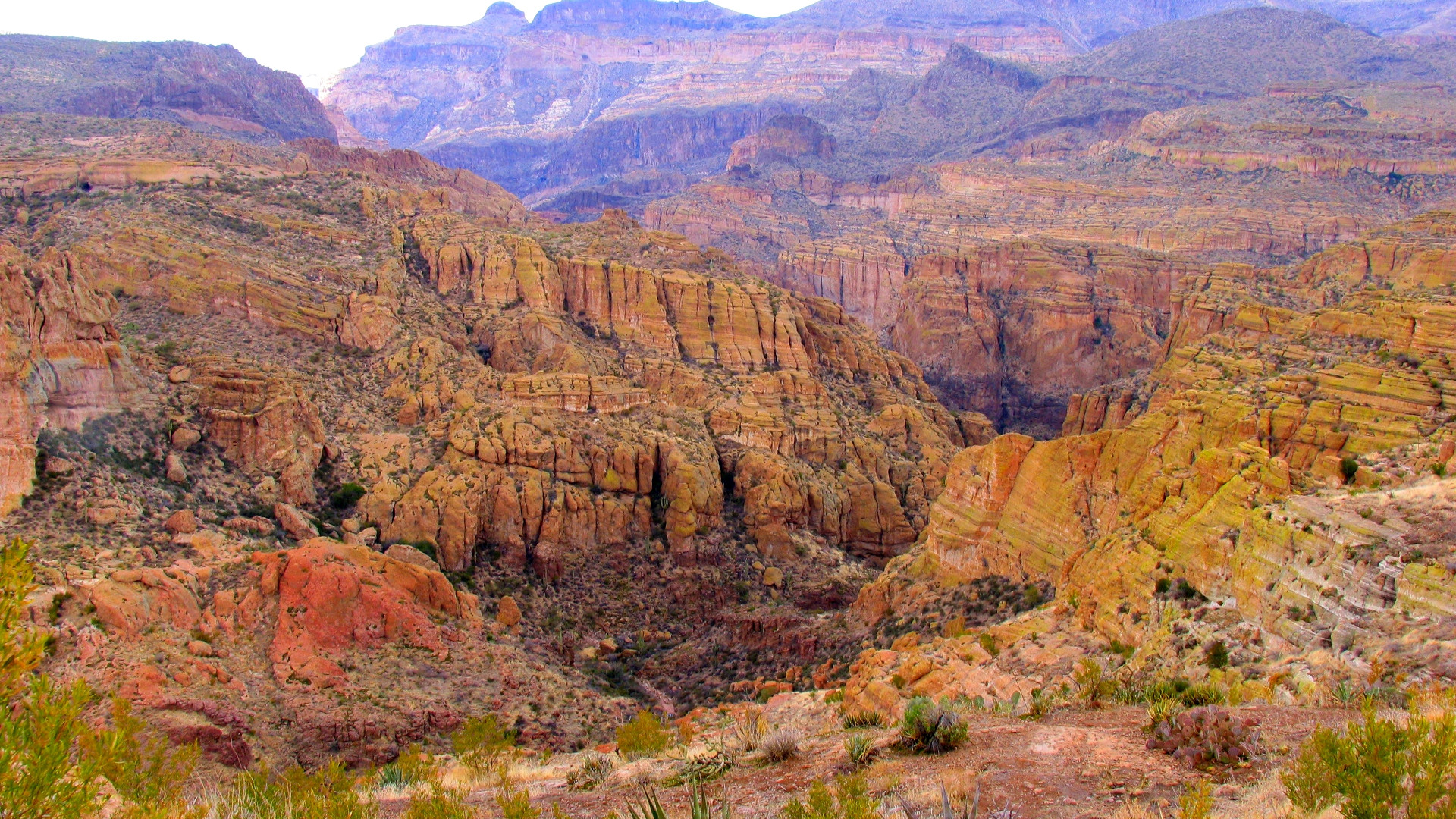On March 17 vandals desecrated the Holy Ground ceremonial space at Oak Flat Campground, a sacred Western Apache site in the Tonto National Forest in Arizona. After hacking up two wooden crosses and stealing two others, as well as federally protected eagle feathers, the criminals left only tire tracks.
Known in the Apache language as Chi’Chil’Ba’Goteel, Oak Flat has been used by Apaches for centuries, according to substantial archeological evidence. Pointing out that “An act specifically targeting an Apache ceremonial ground is no different from vandalism of a church, temple or synagogue,” the San Carlos Apache tribal chair has requested that the Forest Service and FBI investigate this hate crime.
The American Indian Religious Freedom Act requires that American Indians have access to their sacred sites and that, in this case, the U.S. Forest Service launch an investigation and work with law enforcement to prosecute the offenders.
Blame should fall squarely on the shoulders of U.S. Sens. Jeff Flake and John McCain, both Arizona Republicans, who were able to orchestrate the trade of federal forest lands — the people’s lands — to a foreign-owned multinational and multibillion-dollar mining corporation for resource extraction at Oak Flat. Through the attachment of a rider to a must-pass military spending bill in December 2014, Flake and McCain guaranteed the privatization and industrialization of Tonto National Forest generally and Oak Flat specifically.
(Attaching amendments to unrelated appropriation bills is a favorite pastime of McCain’s, who did the same thing to benefit a University of Arizona observatory on Dził Nchaa Si’An, otherwise known as Mount Graham, another Western Apache sacred site and unique natural area, and by backsliding on noise-pollution regulations to benefit air-tour industries in the Grand Canyon, to name but a few.)
That unique riparian areas will be denuded, aquifers contaminated and depleted, and landscapes destroyed is not in question. Rio Tinto, the mining company, admitted that it will create the largest copper mine in the United States and that within 50 years will leave a crater in the Earth that is two and a half miles wide and 1,000 feet deep, producing 1.6 billion tons of toxic mining waste — all within one of the country’s largest national forests. Such numbers are conservative estimates supported by industry. The reality will likely be much worse in terms of the size of the expansive, uninhabitable crater, the effects on plants, trees and animals, water use and contamination, and air quality. As Roy Chavez, a former mayor of nearby Superior, Ariz., stated, “The fight has just started. No one wants to lose Oak Flat.”
Yet the destruction has already begun. In addition to the recent hate crime, water is already reportedly being contaminated: Rio Tinto has drilled into an ancient lake and is working feverishly to dewater the mine area. The company’s large pumps carry 700 gallons of water to the surface where it is supposedly treated and used by farmers.
Such destruction is the continuation of 170 years of settler colonialism, begun violently in the wake of the Mexican-American War and waged against Apaches and landscapes in the Southwest. The Apache genocide that ensued, adroitly described in scholar John Welch’s recent research, centered on the U.S. government and military’s outspoken efforts to kill Apaches wherever they were found and protect any and all mining interests, including those at the current site of Rio Tinto’s insult to Apache heritage.
“Deliberate, state-sponsored violence against Apache families,” according to Welch, was policy. General James Carleton, other military leaders, mining companies and civilian soldiers in the 19th century made clear their intentions and volunteered to eliminate Apache peoples and claim the lands for their own use. Government officials termed Apaches “beastly savages” and called for their “subjugation.” In fact, Carleton explicitly required Apache “removal to a Reservation or by the utter extermination of their men, to insure a lasting peace and a security of life to all those who go to the country in search of precious metals.”
Oak Flat was so ecologically significant that both Republican Presidents Dwight Eisenhower and Richard Nixon protected those lands. In 1955 Eisenhower signed Public Land Order 1229, which placed this land off limits to future mining activity.
In the 21st century, we should all learn to respect the wisdom of indigenous sovereign nations. We should leave the Apache people and federal lands alone. The core of Arizona’s current U.S. congressional delegation does not do that, and arguably has not for decades. It should.
© 2018 Joel Helfrich. All rights reserved.
The opinions expressed above are those of the author and do not necessarily reflect those of The Revelator, the Center for Biological Diversity or their employees.


